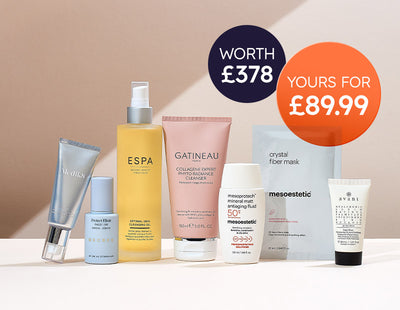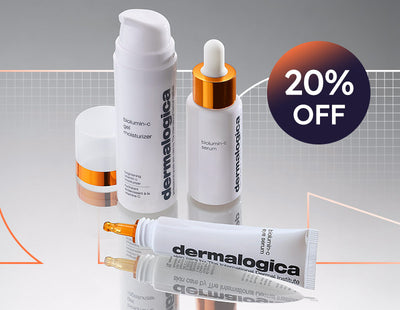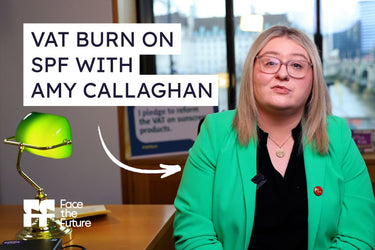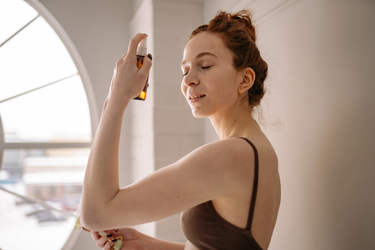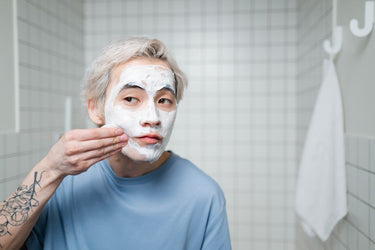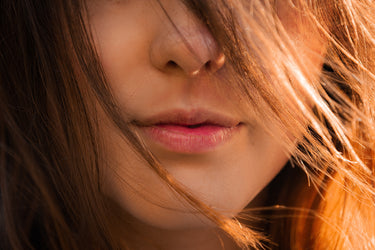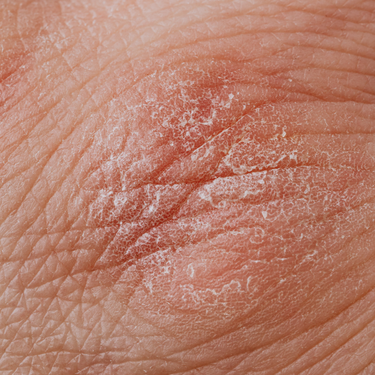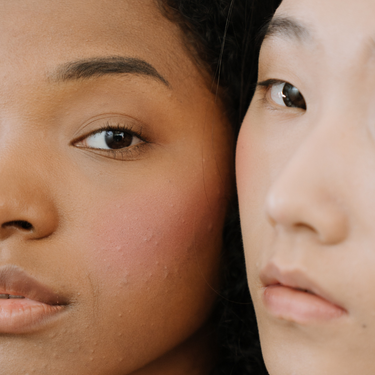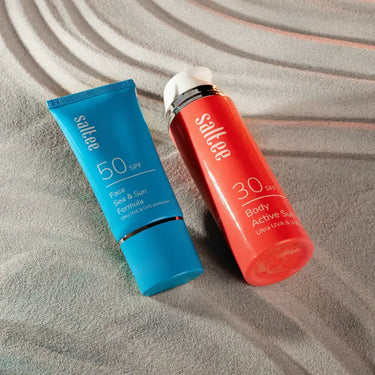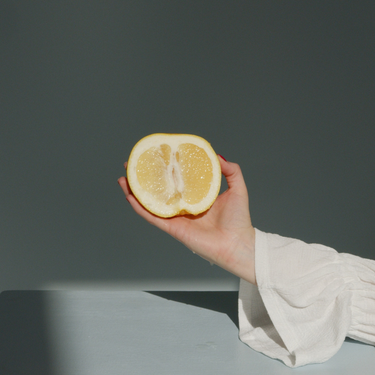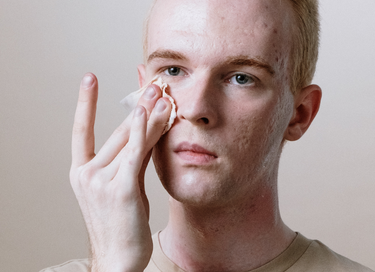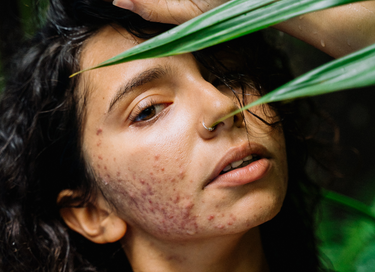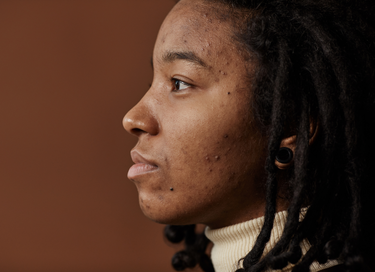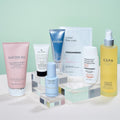A Beginner's Guide To Retinol

It’s no secret that retinol is the holy grail of anti-ageing skincare ingredients. With decades of research and big seals of approval from dermatologists and skincare practitioners worldwide, the popularity of retinol is huge. Despite this, getting into retinol isn't quite as straightforward as picking a new moisturiser or trying a different cleanser. At best, it can cause confusion; at worst it could do damage to your skin if not used correctly. Here’s our beginner’s guide to retinol so you can start using the ingredient with ease, and reap all the skin-loving benefits.
What is retinol?
Retinol is a form of vitamin A. It’s one of many different types of retinoids (an umbrella term for all vitamin-A derivatives) available, and it’s probably the most common. Retinol is an effective cell communicator that helps to normalise the function of the skin, making it a great ingredient for improving lines, wrinkles, uneven skin tone, enlarged pores and sun-damaged skin. Retinol also helps treat acne, as it keeps pores from clogging, which results in fewer blackheads and spots.
What does retinol do?
When we reach our 30s, our cell regeneration slows down, which can cause skin to look dry, dull and wrinkles to appear. Retinol sinks into your skin and speeds up cell turnover, creating fresher, smoother skin more regularly.
How and when do I apply retinol?
Retinol is included in many skincare products, but it's best applied as a serum or cream. Retinol can increase skin's sensitivity to sun damage, so it's always best to use your product at night and apply a broad spectrum sunscreen the following morning.
Who should use it?
Retinol is great for most skin types, particularly when those signs of ageing are beginning to show, however it is a definite no-no if you're pregnant or breast-feeding. If you're unsure, you can always give one of our advisors a call on 0113 282 7744 to determine if retinol would be suitable for you.
What strength of retinol should I use?
Our skin is not naturally tolerant to vitamin A (retinol included), so it is crucial you gradually build up this tolerance. People often think their skin will be able to handle it and go straight in with regular use of a high strength retinol in the hope they will get results more quickly, but in reality it can aggravate skin and lead to redness, dryness and irritation.
You'll notice retinol products come in different strengths, generally 0.3%, 0.5% and 1%. If you have never used retinol on the skin before, always start at the lowest level before working up to higher percentages. Not all skin types can tolerate the higher levels of retinol and this is nothing to worry about. Never push your skin - as long as it's suitable for your skin, you will still see the results.
How often can I use retinol?
Again, this is all about building up usage to allow skin to adjust. Generally, we all know our skin and how much it can take. If you have been advised to use the product by a professional, they should let you know how regularly they recommend you apply. If you're unsure, start off by using once or twice a week to see how the skin reacts, before slowly building up usage as the skin acclimatises.
Can I include retinol in any skincare regime?
This can vary, but combining retinols with other strong actives like AHAs or BHAs can be a bit harsh and can over-strip the skin. Including a vitamin C in your morning regime is beneficial as it will provide antioxidant protection, brighten the skin tone and boost collagen production, aiding the work of your retinol.
Help – what do I do when retinol dries out skin?
When moving up to a higher strength of retinol, it is completely normal to experience a little dryness initially. This is why we advise that you apply it once or twice a week, so as not to over dry and sensitise the skin. Once your skin it has got used to the higher strength, you can start to apply it more regularly.
Shop our best retinol for beginners below:
Medik8 Crystal Retinal 3

Medik8 Crystal Retinal 3 is great product for those new to vitamin A. It’s a cream-serum which is formulated with 0.03% Retinaldehyde, a super-charged derivative of vitamin A which has actually been proven to work up to 11 times faster than retinol. It works to promote the skin’s natural collagen production, rebuild lost collagen and increase cell turnover, promoting a smoother, brighter and healthier complexion. Apply a small amount onto skin after cleansing at night.
Dermaceutic Activ Retinol 0.5

This serum contains 0.5% retinol to boost cell renewal and combat the signs of ageing. It's also enriched with vitamins C and E to help improve sun damage, uneven texture, dullness and fine lines and wrinkles. Apply it to cleansed skin in the evening, followed by your moisturiser of choice.
Dermalogica Overnight Retinol Repair

Dermalogica Overnight Retinol Repair is a cream formula containing active 0.5% microencapsulated pure retinol, which helps to increase cell turnover. The addition of powerful peptides and antioxidant vitamin C helps reduce uneven skin tone and discolouration.
Neostrata Skin Active Retinol Repair Complex

This product contains stable, time-released 0.5% retinol to minimise the risk of irritation. Visible signs of ageing are dramatically improved; lines and wrinkles are smoothed, dark spots are lightened and sagging skin is firmed.
La Roche-Posay B3 Anti-Wrinkle Serum

La Roche-Posay Retinol B3 Anti-Wrinkle Serum is formulated with actives to improve hydration, complexion, and wrinkles. As well as retinol, it contains vitamin B3 which soothes skin and keeps it soft, plump and supple by maintaining optimum hydration levels.
If you would like to discuss retinol in more detail or find the right retinol for you, speak to one of our skincare experts on 0113 282 7744.


